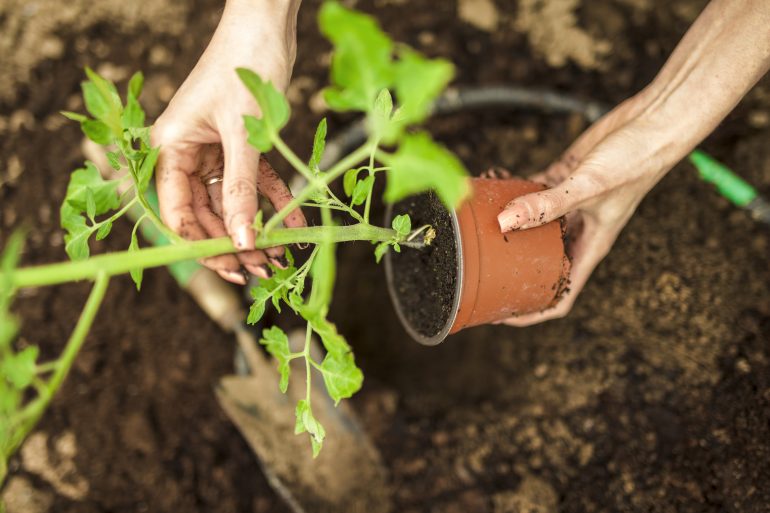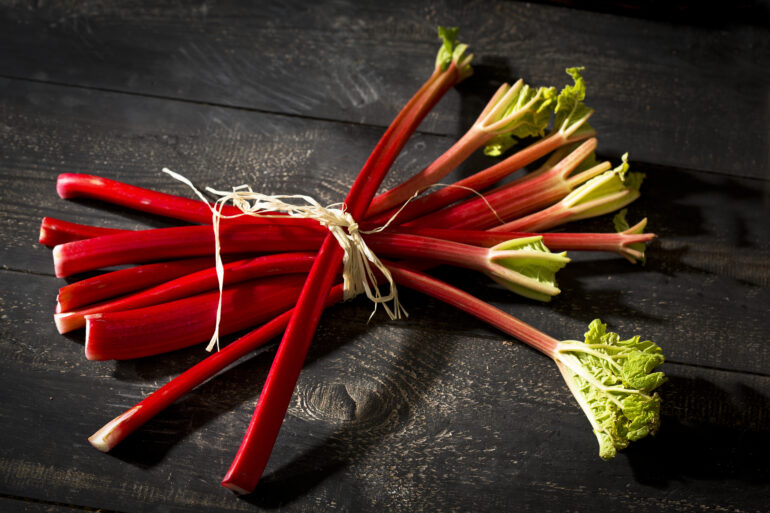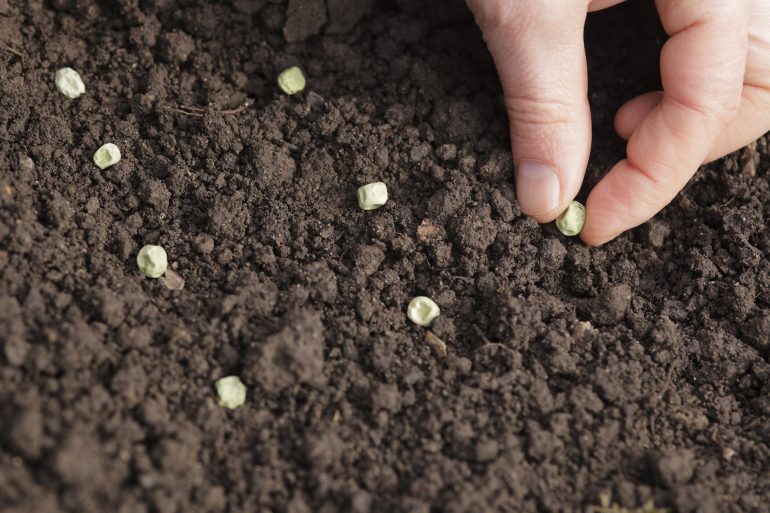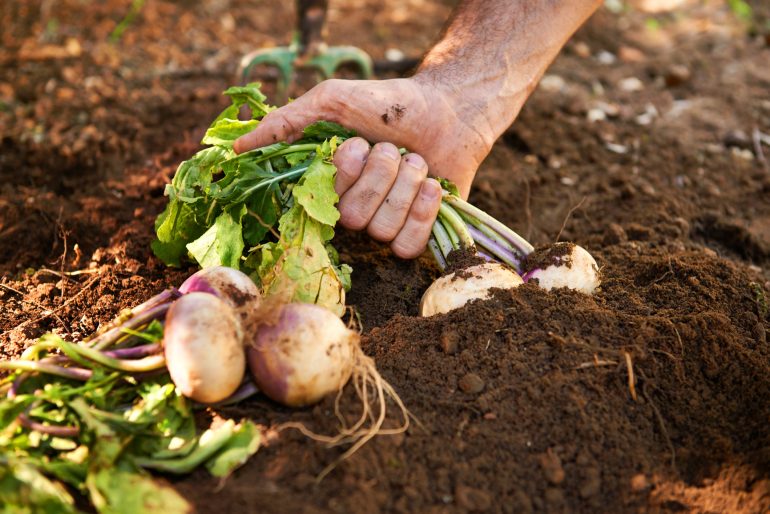February in the UK might conjure images of short days, cold nights, and staying wrapped up inside. However, for gardening enthusiasts, this seemingly bleak month is filled with budding opportunities.
Indeed, there are numerous vegetables to grow in February in the UK, and with the right care, they can be the frontrunners of a bountiful summer garden. If you thought gardening was reserved for the warmer months, think again. From traditional veggies to some delightful surprises, there’s an extensive list of vegetables to plant in February that’ll inspire anyone to get their hands dirty.
Top veggies to plant in February

A tomato plant ready to be planted into the soil. (Credit: mikroman6 via Getty Images)
It might seem more a time for hibernation than germination, but there’s a robust list of vegetables to plant in February. By expanding your planting techniques, such as using greenhouses or starting indoors, this list only grows.
Tomatoes

Close-up of hands planting tomato plant in pot. (Credit: Tara Moore via Getty Images)
Among the fascinating selection of resilient vegetables suitable for a February start, tomatoes stand out. You can initiate your tomato journey this month, setting the stage for a juicy summer bounty. Just ensure to start your tomato seeds inside in a warm spot, maybe inside by a sunny window. As they sprout and grow, remember that they’re sunlight enthusiasts. Once the harshest of frosts have passed, these little plants are ready for the great outdoors, eager for consistent moisture and promising plump rewards.
Rhubarb

Rhubarb (Credit: Westend61 via Getty Images)
Rhubarb is the epitome of patience. Those vibrant stalks symbolise the anticipation of spring, making it an essential veg to plant in February. Just plant dormant crowns any time between November and March. With its stalks that practically beckon to be made into pies and crumbles, planting rhubarb ensures delightful desserts for many seasons to come.
Jerusalem Artichokes

A bumper crop of Jerusalem artichokes. (Credit: Fernando Trabanco Fotografía via Getty Images)
If you’re seeking a touch of the exotic in your garden, Jerusalem artichokes are your go-to veg to grow in February. Despite their name, these tubers share no relation to either Jerusalem or artichokes. What they do offer is a crisp bite and a wellspring of nutrition. As a hearty vegetable, they pledge not only growth but also a generous harvest.
Peas

Sowing peas into the soil (Credit: temmuzcan via Getty Images)
For easy peasy vegetables to plant in February, peas are a smart way to go. Sown indoors in several batches not only protects them from cold, wet soil, but also from pests. And it ensures a steady supply throughout the summer. Then, in March or April, they can usually be moved outdoors.
Endive

Organically grown endive. (Credit: philipimage via Getty Images)
Endive is more than just another leafy green; it’s a vegetable that combines beauty with taste. Among the range of veggies to plant in February, endive stands out for its striking palette and unique textures. Whether you savour its slightly bitter taste or prefer it blanched to a milder flavour, it’s a must-add to your salad bowl. And with similar growing needs as other salads, endive is a gardener’s delight, promising early harvests and minimal fuss.
Chillies, Aubergines, and Peppers.

Ripe red peppers being harvested. (Credit: tomazl via Getty Images)
As February blankets the UK in its wintry embrace, there’s an exciting opportunity to infuse warmth and zest into your garden. The vibrant trio of chillies, aubergines, and peppers stands out among the top vegetables to grow in February. Beginning their journey indoors, these lively veggies thrive in the cosy warmth of containers or growing bags. With their long growing season in mind, there’s no better time than February to set them on their way. From the sultry hues of maturing peppers – transitioning from green to red – to the glossy finish of ripe aubergines, this trio promises a symphony of flavours stretching from late June to September.
Vegetables to Harvest In February

Turnips being pulled from the ground. (Credit: PeopleImages via Getty Images)
As well as veg to plant in February, some are ready to harvest. Among these are leeks, swede, celeriac, brussel sprouts and turnips.
Vegetables to Plant in February

Ripe red cherry tomatoes. (Credit: Aleksandr Zubkov via Getty Images)
Though February in the UK might seem confining, the array of vegetables to plant in February says otherwise. With spring nearly upon us, it’s heartening to know there’s no shortage of veg to grow in February. With diligence, care, and bringing the outside indoors, garden enthusiasts can look forward to a plentiful harvest in the coming seasons.












